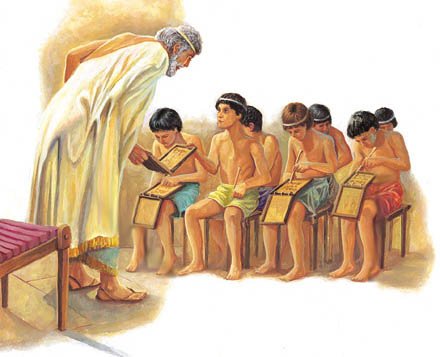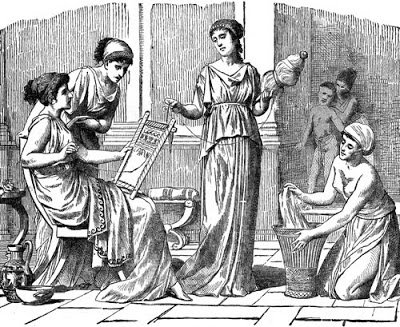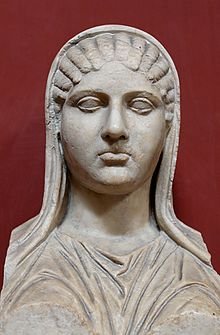What Life Was like for Men and Women in Athens

Athenians could experience life quite differently, depending on if they were male or female. Although this city-state became a pillar of knowledge and a mecca for scholars, it wasn't exactly a utopia for all.
Men
Every male citizen, even the lowest born, had a vote. Many were unschooled and, as a result, illiterate since education wasn't free. If a boy's father could afford it, typically their schooling would begin around 6 or 8. They had the choice of either attending one or being tutored at home.

These students would begin learning the writings of Homer. His works included valuable life lessons that would ensure these boys would become well-rounded individuals. Their curriculum also included reading, writing, mathematics, gymnastics, and rhetoric. Education was absolutely believed to be important to get ahead in life. Their system was so great in fact, that people all over the ancient world sent their sons to receive Athenian education.
At 18, they had to go into military training for 2 years, with an obligatory enlistment of 10 years. It wasn't a standing military - instead they would wait to be called up to fight while they would run their business or tend to their land. It was also common for young males to have an older male partner. They were never of equal status, as this was illegal. With pederasty, some examples of an "appropriate" setup would be between a teacher and student, or a rich man and a poor man.
Women
As a female, life was not so grand. Women were only citizens to confer citizenship to their sons. Girls were not valued since they didn't carry the family name. At around 12 or 13, girls are expected to marry and bear children for the their husbands. It's no surprise then that the leading cause of death for Athenian women was pregnancy and childbirth. On top of that, on average they would have 4.3 children, while only 2 would survive to adulthood.
When they were married off, their fathers provided a dowry. This was to ensure they were not mistreated by their husbands. If a girl was, she would return home with it. It was not uncommon for parents to commit infanticide if they simply didn't want or couldn't afford to have more daughters.

If a girl survived infancy, she was forbidden from going to school. They would learn some reading or writing at home, but this was unnecessary since what they did at home was essentially slave work. If at 17 or 18 they were still unmarried, they would be considered damaged goods. Girls were expected to be virgins upon being married. If not, the husband would keep the dowry and they would be pushed into prostitution.
Once married, she is always married. Women could never own anything in their own right or represent themselves in court. Very rarely would women leave their home - if they did they would be escorted by a male relative. They were not allowed to vote, attend theaters or parties, and were excluded from dining with their husbands.
Exceptions
It was considered ideal for women to behave and do the things mentioned above, but not everyone was the same. Poor women had to earn a living, so they worked. In many ways, they had more freedom than respectable women. Prostitutes also had more freedom because they were not respectable, therefore they were not bound by the rules of society.
Hetaira were the top of the prostitution pecking order. They were often foreigners, as they were well educated. They could read and write, talk politics, attend theater, and speak freely to men. Although they provided sex, a larger part was companionship. It was acceptable for a man to have a hetaira just before marriage. They were supposed to end the arrangement once married, but they didn't always. Pericles, ruler of Athens, famously left his wife for Aspasia who was a hetaira. Clearly the social rules were there in most of Greece, but not everyone followed them.

A M A Z I N G
Great historical facts. Fortunately the lives of women have improved tremendously.
Indeed! Not to mention, most of these women lived in windowless homes while using olive oil candles - that gets really smoky.
Very interesting post. I love history. I thought that women were allowed to go to school. This was enlightening.
Cheers,
@clayford08
I do post a lot about history! I'm dedicating my blog to it and try to write something everyday. Thanks for the follow and upvote!
And you know? I love history. Thanks for doing this!
Following you to learn more. :)
Thank you so much! This makes me genuinely happy, I hope you can stick around! :)
I am am sticking around. In fact, was in the middle of something, so I couldn't completely read this post. Rest assured, it is bookmarked. I like history. I dig it. :)
Keep steeming! I have my eyes on you, like Greek Men! JK.
very beautiful post..... history is a good thing
Indeed it is! Thank you for reading.
my pleasure